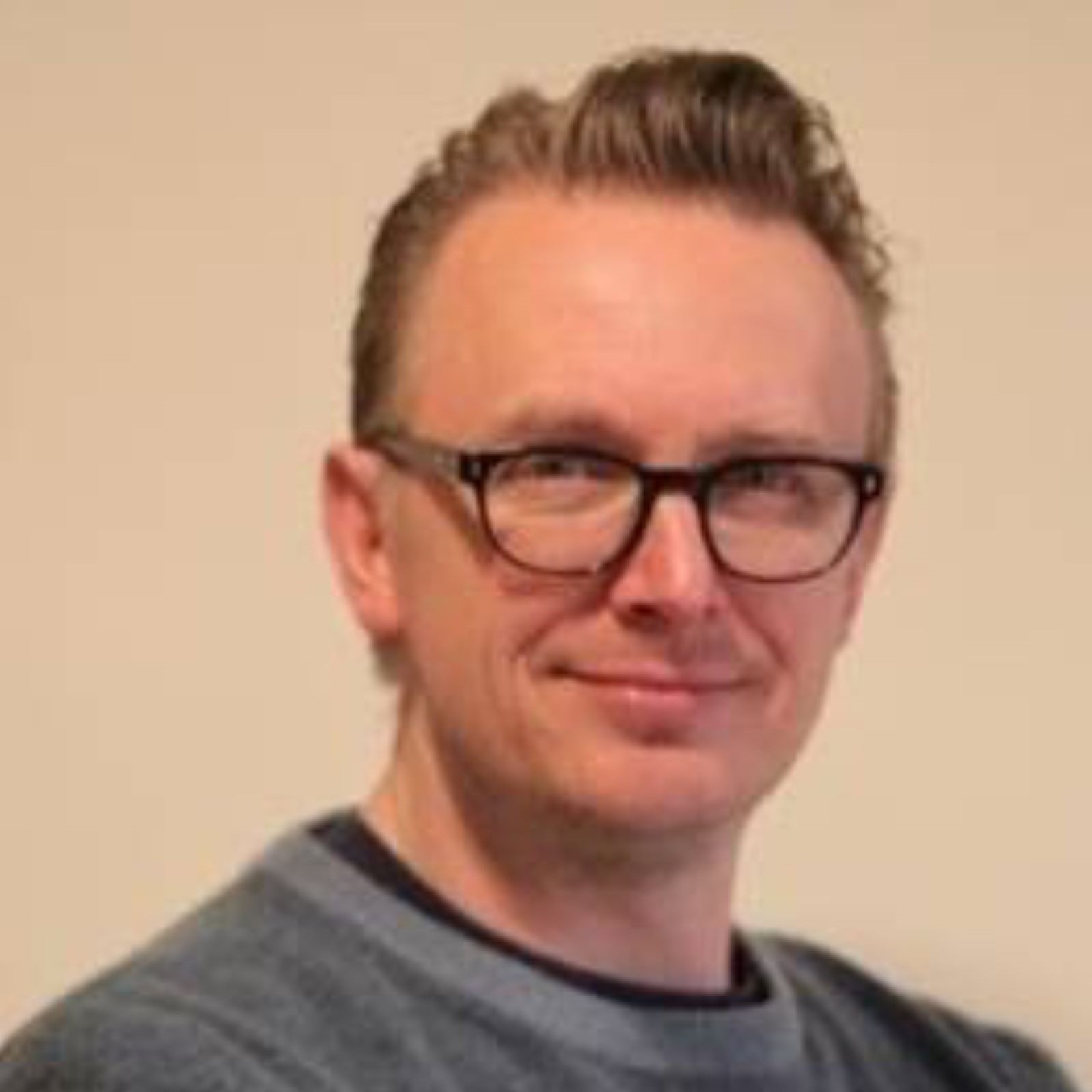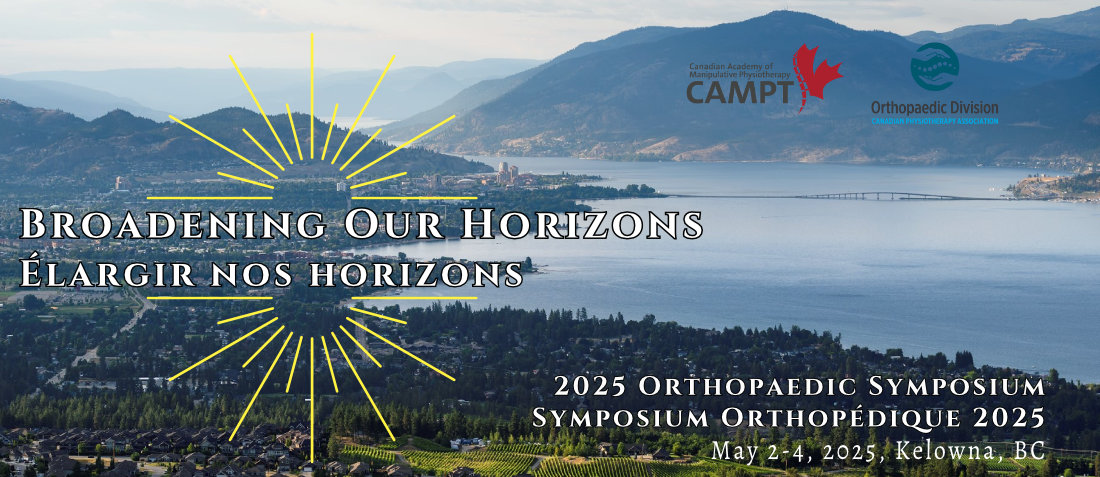Breakout Sessions
Yukino Fukushima
– An Evidence-Informed Rehabilitation Management Framework for Posterior Shoulder Tightness: A Scoping Review
A scoping review of peer-reviewed literature on posterior shoulder tightness (PST) to define a therapistinstructed and therapist-administered management framework. The results of this review inform physiotherapy management of myofascial causes of PST in adults aged 18-60. Based on the current evidence, cross-body stretch and sleeper stretch are the most researched treatments for PST and may be effective at improving posterior shoulder tightness. Furthermore, stabilization of the scapula while performing these stretches optimized the stretch targeted to the PST and range of motion benefits for horizontal adduction.

Yuki is a graduate from Western University’s Master of Clinical Science of Advanced Health Care Practice Program in Comprehensive Musculoskeletal Physiotherapy. Currently Yuki is an Orthopaedic and Pelvic Health Physiotherapist at Cornerstone Physiotherapy in Burlington, Ontario. As a recent member of the Orthopaedic Division’s Executive team, Yuki is passionate about using research, clinical skills and networking to foster the growth of orthopaedic physiotherapy in Canada.
Janine Didyk and Dr. Dan Ogborn
– New insights in managing patients following arthroscopic surgery for femoroacetabular impingement
The use of arthroscopic surgery for the management of patients with femoroacetabular impingement (FAI) has increased dramatically. Despite this, the details regarding optimal post-operative care remain to be determined with considerable variability in post-operative protocols. The purpose of this presentation is to review the literature on the management of patients with FAI who have had hip arthroscopy. Following the presentation attendees will be able to:
1) identify the key components of pre-operative education for patients with FAI undergoing hip arthroscopy,
2) implement appropriate weight-bearing education strategies in the early postoperative period,
3) identify key components of the post-operative program including patient-reported and performance outcomes to facilitate post-operative progressions and return to sport decision-making.
Attendees will leave with strategies that can be implemented in clinic including appropriate patient-reported outcome measures, strategies to guide post-operative weight-bearing, and return to sport assessment methodologies. Orthopedic physiotherapists must be aware of appropriate rehabilitative strategies for patients with FAI due to the increasing use of hip arthroscopy.
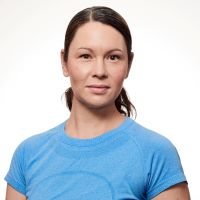 Janine Didyk BSc., BMR (PT) is a Senior Physiotherapist/Research lead at Pan Am Rehabilitation Services whose clinical practice focuses on hip and lower extremity rehabilitation. Janine is a certified Hip Preservation Rehabilitation clinician (Hospital for Special Surgery, NY). Janine is currently completing a MSc. at the University of Manitoba and conducting a randomized controlled trial investigating the use of Electroacupuncture to affect pain, function and quality of life in patients currently on a waitlist for a total knee arthroplasty. At the Pan Am Clinic Foundation, Janine is involved in research related to hip arthroscopy outcomes.
Janine Didyk BSc., BMR (PT) is a Senior Physiotherapist/Research lead at Pan Am Rehabilitation Services whose clinical practice focuses on hip and lower extremity rehabilitation. Janine is a certified Hip Preservation Rehabilitation clinician (Hospital for Special Surgery, NY). Janine is currently completing a MSc. at the University of Manitoba and conducting a randomized controlled trial investigating the use of Electroacupuncture to affect pain, function and quality of life in patients currently on a waitlist for a total knee arthroplasty. At the Pan Am Clinic Foundation, Janine is involved in research related to hip arthroscopy outcomes. 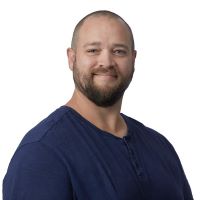
Dan Ogborn PT MSc(PT) PhD is a Senior Research Associate and Physiotherapist at the Pan Am Clinic Foundation, the Director of the Resident Research Program in Orthopedic Surgery and an Adjunct, Assistant Professor in Physical Therapy at the University of Manitoba in Winnipeg, Manitoba, Canada. His research program and clinical practice focus on return to sport assessment for patients following orthopedic surgery and injury.
Allison Ezzat
– Integrating digital innovation into clinical practice to improve first-line management of knee osteoarthritis
VIRTUAL
Many people with knee osteoarthritis do not access guideline-recommended first-line treatments (exercise therapy, patient education, weight management). The COVID-19 pandemic exacerbated this guideline-practice gap and led to the rapid implementation of, and reliance on, digital health innovations including telehealth and online resources. However, physiotherapists need support to integrate these innovations into practice. This session will provide insight into the efficacy of telehealth and the use of online tools to support musculoskeletal clinical practice. There is a growing body of evidence supporting telehealth in musculoskeletal practice. We have led numerous mixed-methods publications examining implementation and patient experiences of one-on-one and group-based telehealth, plus physiotherapists’ learning needs. This session will highlight the results of our recent non-inferiority RCT comparing the Good Life with osteoarthritis in Denmark (GLA:D®) via telehealth to inperson delivery, as well as the impetus for, co-development, and evaluation of, our online toolkits, including how physiotherapists can integrate them into practice. The pandemic rapidly accelerated opportunities for digital innovation in physiotherapy practice. This session will improve clinicians’ knowledge and confidence of telehealth and provide them with access to evidence-based resources to support high-quality knee osteoarthritis care.
Dr. Allison Ezzat is a physiotherapist post-doctoral research fellow at La Trobe Sport and Exercise Medicine Research Centre with a Canadian Institutes for Health Research Postdoctoral Fellowship. Her research focuses on using process evaluation and implementation science to advance the prevention of knee injuries and improve access to non-surgical care, including via telehealth, for people with knee osteoarthritis.
Assoc Prof Barton’s published work includes more than 150 peer reviewed publications, and he has received more than $7M in funding since 2018 to support his research program. His research focuses on exercise therapy, physical activity and behaviour change, in people with knee pain and osteoarthritis, and other chronic diseases.
Asst Prof Anthony Goff currently teaches on the BSc physiotherapy programme at Singapore Institute of Technology. His published research focuses on patient education and engagement in guideline-recommended first-line care for people with knee osteoarthritis. He has a particular interest in how beliefs about osteoarthritis are formed, and the impact that this has on self-management, plus using co-design methodology to create digital educational and behaviour change interventions.
Scott Whitmore, Dr. Erdem Huner, Sarah Bleichert
– Dry Needling: The Current Evidence for Dry Needling in Clinical Practice: “Let’s Get to the Point”
A brief session on how dry needling is commonly integrated into musculoskeletal practice. Presenters will discuss the evidence surrounding the physiological effects and treatment effectiveness of dry needling.
Scott Whitmore (Bsc.PT, MClSc-PT) is an FCAMPT physiotherapist with over 25 years of clinical experience in musculoskeletal physiotherapy and private practice. Scott is a founder and instructor of the Integrated Dry Needling certification course for physiotherapists.
Dr. Erdem Huner (PT, BScPT, DSc) is an FCAMPT physiotherapist with over 20 years of clinical experience focusing on musculoskeletal physiotherapy. Erdem is a senior instructor in the Canadian Physiotherapy Association’s Advanced Integrated Musculoskeletal physiotherapy program and an instructor of the Integrated Dry Needling certification course for physiotherapists.
Sarah Bleichert (BMR-PT, MClSc-PT) is an FCAMPT physiotherapist with 15 years of clinical experience in musculoskeletal physiotherapy and private practice. Sarah is a founder and instructor of the Integrated Dry Needling certification course for physiotherapists.

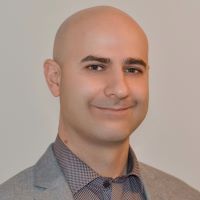
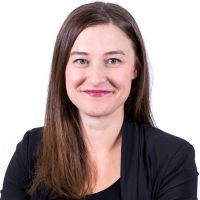
Dr. Joshua Lee
– Development of a musculoskeletal spine rehabilitation registry to inform clinical prediction, disease modeling, and translational research
Purpose/Objectives and Rationale: Many chronic health conditions benefit from large, national registries to track health-related metrics, predict outcomes, and inform practice guidelines. Our objective is to create an international registry recruiting patients receiving rehabilitation for spinal pain.
Relevance and Target Population: The registry is designed to be a sustainable source of research data and potential participants for research. Data will inform translational research aimed at identifying predictive factors of disease onset, progression, and outcome. Participation in the registry will be voluntary and recruitment will take place at the point of engagement with a rehabilitation provider.
Description of Supporting Evidence: Supporting evidence for the development of this registry is drawn from systematic reviews (level 1), randomized control trials (level 2a), and prospective cohort studies (level 2b). Patient partner data has directly informed development of the registry.
General Session Content: The session will provide a general overview of patient partner engagement, registry design, data collection procedures, planned research studies, and an introduction to the international registry network.
Conclusion and Clinical Relevance: This rehabilitation-focused registry represents the first of its kind to support spine research enabling investigation of clinical phenotypes, recovery pathways, current clinical practice, identification of risk, and prediction of outcomes.
Josh is a postdoctoral associate and clinician that seeks to bridge the gap between mechanisms of pain and clinical rehabilitation.  Drawing from his previous experiences in graduate biochemistry, science education, and cross-cultural teaching, he brings a more integrative approach to physiotherapy and research. As a licensed physiotherapist, he has dealt primarily with underserved and marginalized populations in London, Ontario where he has gained invaluable experience with complex pain and interdisciplinary care. He is currently part of an international collaboration between Canada, the UK, and Australia to develop a musculoskeletal spine rehabilitation registry for ongoing research. Despite the mountain of work ahead of him, he remains optimistic that this ambitious collaboration will help bring innovations from the bench to the bedside.
Drawing from his previous experiences in graduate biochemistry, science education, and cross-cultural teaching, he brings a more integrative approach to physiotherapy and research. As a licensed physiotherapist, he has dealt primarily with underserved and marginalized populations in London, Ontario where he has gained invaluable experience with complex pain and interdisciplinary care. He is currently part of an international collaboration between Canada, the UK, and Australia to develop a musculoskeletal spine rehabilitation registry for ongoing research. Despite the mountain of work ahead of him, he remains optimistic that this ambitious collaboration will help bring innovations from the bench to the bedside.
Dr. Dan Ogborn
– Measuring muscular strength following orthopedic injury and reconstructive surgery
The assessment of muscular strength is common in return to sport recommendations, yet there is no methodological consensus. In practice there is variability in equipment used, often due to resource constraints, and the metrics assessed (limb symmetry index, absolute strength, relative strength) and clinical thresholds often vary. As muscular strength may be a risk factor for the development of chronic conditions or reinjury following surgery, accurate measurement in clinical practice is integral to inform patient decision making. This presentation will evaluate methodologies for muscular strength assessment in the context of return to sport and the translation of findings into effective treatment strategies. Attendees will be able to 1) describe common methods for strength assessment, 2) identify when range-specific strength measurements may be required, 3) understand how quantification methods (normalization) impact test interpretation, including discussion of the limitations of the limb symmetry index (LSI) and how this metric may still guide decision making for exercise prescription. While measurement of muscular strength is common in practice, methodology can vary substantially creating confusion for clinicians. The methods discussed will increase clinician confidence in the measurement and interpretation of muscular strength in clinical practice.
Dan Ogborn PT MSc(PT) PhD is a Senior Research Associate and Physiotherapist at the Pan Am Clinic Foundation, the Director of the Resident Research Program in Orthopedic Surgery and an Adjunct, Assistant Professor in Physical Therapy at the University of Manitoba in Winnipeg, Manitoba, Canada. His research program and clinical practice focus on return to sport assessment for patients following orthopedic surgery and injury.
Spine Panel
Dr. Sukhvinder Kalsi-Ryan, Dr. Joshua Lee and
Russ Horbal
– Maintaining Active Lifestyles with Spinal Pain. Tackling the Pain and Fear with Care/Compassion and Evidence
Dr. Sukhvinder Kalsi-Ryan (PT, BScPT, MSc., PhD) is a clinician scientist in the field of neurological rehabilitation with a special interest in upper limb assessment, recovery, neuro-restoration and spine pathology at KITE Research Institute-UHN, and is also Assistant Professor at the University of Toronto, Department of Physical Therapy. Her research is oriented to establishing methods to quantify neurological change after injury and studying neuro-restorative methods to enhance and optimize function for those with neurological impairment. She is an extramurally funded mid-career scientist with a passion to contribute to the transformation of rehabilitation.
—
Dr. Josh Lee is a postdoctoral associate and clinician that seeks to bridge the gap between mechanisms of pain and clinical rehabilitation. Drawing from his previous experiences in graduate biochemistry, science education, and cross-cultural teaching, he brings a more integrative approach to physiotherapy and research. As a licensed physiotherapist, he has dealt primarily with underserved and marginalized populations in London, Ontario where he has gained invaluable experience with complex pain and interdisciplinary care.
He is currently part of an international collaboration between Canada, the UK, and Australia to develop a musculoskeletal spine rehabilitation registry for ongoing research. Despite the mountain of work ahead of him, he remains optimistic that this ambitious collaboration will help bring innovations from the bench to the bedside.
—
Russ Horbal graduated from University of Manitoba with a Bachelor of Medical Rehabilitation in Physical Therapy. He also has a Bachelor of Physical Education and a Education Certificate. Russ attained his Diploma in Sport Physiotherapy and has achieved the status of a Registered International Sports Physical Therapist. He is also a Certified Athletic Therapist.
Russ is presently a physiotherapy consultant at Pure Physiotherapy/Lifestyle in Winnipeg. He is a lecturer in the Department of Physical Therapy, College of Rehabilitation Sciences, Rady Faculty of Health Sciences at the University of Manitoba. Previously Russ was a partner/owner of the Sports Physiotherapy Centre at the Pan Am Clinic in Winnipeg.
Russ has been a member of the Orthopaedic Division for 40+ years and served on their Executive in the early 1980’s and was the National Newsletter Editor during that time. He has a wealth of clinical and educational experience in caring for musculoskeletal injuries – particularly conditions of the foot and ankle. Russ believes strongly in the importance of continuing education and provides educational opportunities to fellow therapists and other healthcare professionals through professional development events, conferences and workshops.



Hip and Pelvic Panel
Dr. Alison Grimaldi, Dr. Kelli Berzuk, Dr. Jordan Feigenbaum
– Hip and Pelvic Pain: Opportunities to Collaborate
Dr. Alison Grimaldi, BPhty, MPhty(Sports), PhD is an Australian Sports Physiotherapist and practice principal of PhysioTec in Brisbane, with 30 years of clinical experience and a special interest in hip conditions. She is also an Adjunct Senior Research Fellow at UQ and runs an online Hip Academy at dralisongrimaldi.com
Dr. Kelli Berzuk is a physiotherapist with close to 30 years of clinical experience focused on pelvic floor health. She received post-graduate Certification in Pelvic Floor Rehabilitation and Continence through the University of Melbourne, Australia, and a Master of Science and PhD in Urogyne-Colorectal Medicine through the University of Manitoba.
Dr. Jordan Feigenbaum is a physician, strength coach, and competitive powerlifter. He started Barbell Medicine in an effort to combine the best of modern medicine and strength and conditioning. Jordan is passionate about a variety of issues related to public health, education, and sport.
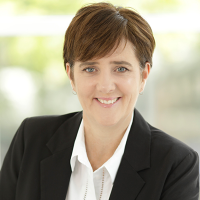
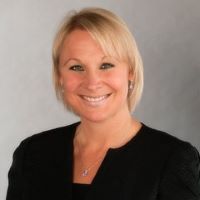
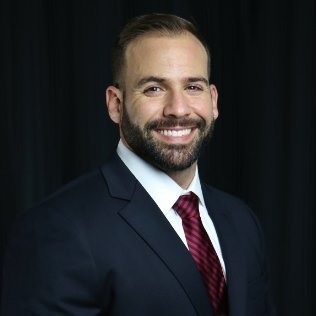
Dr. Alison Rushton
– International position statement: Examination of the Cervical Region for potential of vascular pathologies of the neck prior to Musculoskeletal Intervention
Vascular pathologies of the neck are a rare but important consideration for musculoskeletal examination of the cervical spine. This position statement provides a framework for effective clinical reasoning, by considering the breadth and complexity of evidence to inform clinical reasoning for cervical presentations. Developed from the international IFOMPT cervical framework, this position statement uses best contemporary evidence and expert opinion to assist clinical reasoning processes when considering presentations involving the head and neck.
The framework was developed through rigorous consensus across n=22 countries. Through an iterative consultative process, drafts of the framework were developed and circulated for review and feedback. Case histories illustrate the clinical reasoning required for safe and effective practice. A visual tool is used to illustrate the level of support for a vasculogenic hypothesis. Level of support (low, moderate or high) influences subsequent decision-making processes.
Vascular pathologies of the neck may be recognizable. Appropriate questions during the patient history with interpretation of patient data, followed by adaptation of the physical examination to explore a potential vasculogenic hypothesis are important to avoid misdiagnosis and serious adverse events. Methods to guide examination of the cervical region in advance of musculoskeletal interventions inclusive of exercise, mobilization and manipulation are summarized.
Alison is Professor and Director of Physical Therapy at Western University. Alison has a strong research profile reflected in a h-index of 36 and i10-index of 84, with >£2M funding, £11M research centre funding, and >225 publications. Her research is at the forefront of understanding assessment and management of musculoskeletal disorders particularly spinal pain, focused on precision rehabilitation.
and i10-index of 84, with >£2M funding, £11M research centre funding, and >225 publications. Her research is at the forefront of understanding assessment and management of musculoskeletal disorders particularly spinal pain, focused on precision rehabilitation.
Alison’s has >$1.5 million active funding supporting research projects that are collaborative with teams of national/international researchers and clinical sites and patients focused to personalized rehabilitation for patients presenting with musculoskeletal pain of spinal and traumatic origin.
Alison has been awarded fellowships from the Chartered Society of Physiotherapy and Musculoskeletal Association of Chartered Physiotherapists in the UK and the International Federation of Orthopaedic Manipulative Physical Therapists internationally for her
national/international contribution to musculoskeletal physiotherapy research/education.
Cervical Spine Panel
Dr. Alison Rushton, Dr. Roger Kerry, Pierre Langevin
– Neck Pain and Post Concussion Syndrome: Improving Efficacy in Physiotherapy
Dr. Alison Rushton is Professor and Director of Physical Therapy at Western University. Alison has been awarded fellowships from the Chartered Society of Physiotherapy and Musculoskeletal Association of Chartered Physiotherapists in the UK and the International Federation of Orthopaedic Manipulative Physical Therapists internationally for her national/international contribution to musculoskeletal physiotherapy research/education.
Professor Pierre Langevin is a 25 years of experience physiotherapist and CAMPT member. He holds a Master from UWO and currently completes a PhD at Université Laval. He is an instructor, clinical researcher and clinician with concussion and neck pain. Pierre has published several research articles and presented in several conferences.
Dr. Roger Kerry is an Associate Professor in the Faculty of Medicine and Health Sciences at the University of Nottingham, UK. He is an honorary Fellow of the UK’s Musculoskeletal Association of Chartered Physiotherapists. His main clinical research interests have been in adverse events and physiotherapy interventions of the head and neck.


